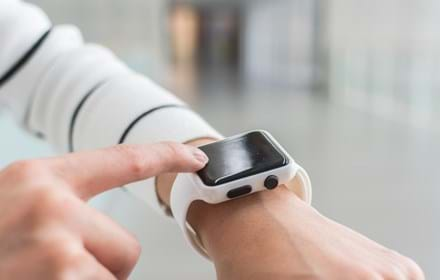
Government update report concludes insufficient evidence that taking ibuprofen could impact on COVID-19 symptoms
Follow-up investigation does not highlight risk in relation to COVID-19, although painkiller can have adverse effects when taken with some diabetes medicines.
A government investigation led by the Medicines and Healthcare products Regulatory Agency (MHRA) has concluded that there is currently insufficient evidence to establish a link between use of ibuprofen, or other non-steroidal anti-inflammatory drugs (NSAIDs), and susceptibility to contracting COVID-19 or the worsening of its symptoms.
A report carried out by the Commission of Human Medicines (CHM) Expert Working Group on coronavirus (COVID-19) recommended that patients can take paracetamol or ibuprofen when self-medicating for symptoms of COVID-19, such as fever and headache, and should follow NHS advice if they have any questions or if symptoms get worse.
As previously reported, following COVID-19 being recognised as a pandemic, a government statement said: “We are aware there has been concern spreading about the use of ibuprofen and other non-steroidal anti-inflammatory medications (NSAIDs) in relation to COVID-19.”
NHS guidance reminds people to be aware that ibuprofen doesn't mix well with some medicines, including treatments for diabetes, such as gliclazide, glimepiride, glipizide and tolbutamide.
For safety it is recommended that you tell your doctor if you are taking these medicines before you start taking ibuprofen orally or using it on your skin.
Ibuprofen applied to the skin is less likely to interfere with other medicines than if it is taken orally.
The government report reminded people to “always read the patient information when taking over-the-counter medicines, such as ibuprofen and paracetamol, and follow the instructions on how to take the medicines”.
When prescribing ibuprofen, healthcare professionals “should consider a patient’s individual risk factors, including any history of cardiovascular and gastrointestinal illness, when prescribing ibuprofen. Additionally, ibuprofen should be used with caution in patients with known renal impairment”.
The report added: “The lowest effective dose of ibuprofen should be used for the shortest duration necessary to control symptoms.
“Patients who have been prescribed NSAIDs as a treatment for a long-term condition, such as arthritis, should keep taking these medicines as normal. Adult patients who take low-dose 75 mg aspirin regularly for prevention of heart attacks or for vascular disease should continue to do so.
“Healthcare professionals, patients and carers should report any suspected side effects from a medicine including those purchased over-the-counter to the Yellow Card Scheme.”
Although there is no official statement from the NHS on the risk of having the coronavirus (COVID-19) and living with diabetes it is recommended that the same safety precautions are observed as when sick.
Read the government response
As previously reported there is No evidence to suggest taking ibuprofen makes COVID-19 worse
Read Managing diabetes and looking after yourself during the COVID-19 health crisis
Recent News


